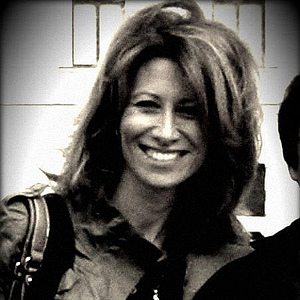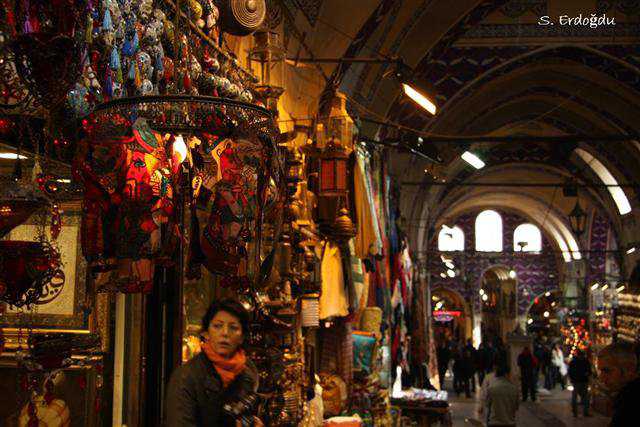Turkey Diverges From Western Position On Libya
Publication: Eurasia Daily Monitor Volume: 8 Issue: 44
March 4, 2011
By: Saban Kardas
Turkey has pursued a policy over the popular uprising in Libya reflecting the unique ties it had developed with this country. More importantly, Turkey’s position in the ongoing debate concerning the involvement of the international community in the form of sanctions or possible military intervention increasingly sets Turkey apart from Western policy.
Turkish construction firms have penetrated the Libyan market, signing major contracts in the country since the 1970’s. With the lifting of international sanctions against Libya in the early 2000’s, the construction industry experienced a new boom, as well as creating fresh business opportunities. During his visit to Libya in 2009, Turkish Prime Minister Recep Tayyip Erdogan made an effort to further improve economic ties with Libya, as part of Turkey’s proactive foreign trade strategy of gaining new markets for businesses abroad. Indeed, Turkish contractors received a good share of the new business opportunities. Turkish firms undertook projects worth over $15 billion in recent years, and over 20,000 Turkish people were living in Libya, mostly employed in the construction sector. Moreover, in recent years, Turkey’s exports to this country also increased, reaching $2 billion in 2010 (www.cnnturk.com, February 21).
When the protests started to spread across Libya, the fate of Turkish investments and workers in the country was the main concern shaping Ankara’s response. Initial reports of looting in some construction sites, and growing concerns about the safety of Turkish workers, forced the government to open a crisis desk. According to Trade Minister, Zafer Caglayan, Turkish investments in the country were guaranteed by the Libyan government and their first priority would be to ensure the physical safety of Turkish citizens (Zaman, February 22). With the rapid deterioration of the situation, the Turkish government launched what it called the largest evacuation operation in history. Through the utilization of aircraft and ferries, Turkey successfully evacuated its citizens and people from many other nations, which received widespread coverage in domestic and international media.
However, as international attention shifted towards the atrocities committed by the Gaddafi regime against the protestors, Turkey’s policy diverged from the US or Western position. The Turkish opposition criticized the government for failing to openly condemn Gaddafi’s brutal use of force and expressing support for the Libyan people (www.ntvmsnbc.com, February 21). Given the presence of large numbers of its citizens, Turkey, perhaps understandably, was timid in its reaction to the Gaddafi regime. However, the government’s subsequent statements on Libya demonstrated that it pursued a different policy based on differing assumptions, compared to its Western partners.
Ahead of the UN Security Council meeting last weekend, where the UN decided to impose a range of sanctions against the Libyan regime, President Barack Obama telephoned Erdogan to discuss the developments. Although the statement released by the White House maintained that the two sides agreed on joint action, representatives from the Turkish government stressed that Turkey would not support any action that could be considered in contravention of the principle of “nonintervention in domestic affairs” and Turkey would prefer that international involvement remained limited to providing humanitarian assistance. Turkish journalists based in Washington started to talk about a “rift” between Ankara and Washington (Zaman, February 28).
Indeed, Erdogan’s subsequent statements clearly revealed those diverging policy perspectives. Addressing the Turkish public over the weekend on the eve of the UN Security Council meeting, Erdogan expressed his strong opposition to sanctions, arguing that sanctions did not work in the past and they would hurt only the people. Interestingly, he called on the international community and Western countries to approach the Libyan issue from a humanitarian perspective, not on the basis of oil interests (Anadolu Ajansi, February 27).
As the discussions gained pace on the imposition of a no fly zone over Libyan airspace to prevent Gaddafi forces from crushing the opposition forces, Turkey’s differences with Western policy also became visible. Meanwhile, having evacuated its citizens from Libya, the US, in line with many Western governments, adopted harsher language critical of the Libyan regime, calling on Gaddafi to step down or face the consequences. While the US boosted its naval presence in the Mediterranean, attention also focused on the role of NATO in possible military action against Libya.
Again, Erdogan took a clear stance against NATO’s involvement in any operation against Libya. While visiting Germany to meet with Turkish people living in the country, Erdogan reacted to the news stories. “All sanctions and interventions that will hurt Libyan people cannot be accepted… What does NATO have to do in Libya? … We are against it,” Erdogan said (Hurriyet, February 28). Those statements made headlines in many newspapers on the following day, which indicated how well Erdogan’s views resonate with Turkish public opinion on the issue. Moreover, Turkish Foreign Minister, Ahmet Davutoglu, also expressed objections to foreign intervention, arguing that the deployment of foreign troops in the country would not be welcome by the local people and foreign involvement would further complicate the situation (Hurriyet, March 2).
Through his recent statements, Erdogan has implied that the West was driven by material interests, rather than genuine humanitarian considerations about the Libyan people. Such rhetoric mirrors the position advocated by the leaders of Iran or Venezuela, who have been arguing that the West is seeking to capitalize on the unrest in the country to re-colonize Libya, or occupy it to extract its oil. Moreover, Erdogan’s statements, for instance, on sanctions reveal that his objection to sanctions is not based on content per se. Although Erdogan has maintained that sanctions would hurt the people, there was in fact nothing in the list of sanctions approved by the UN Security Council to that effect, as they were specifically targeting the Gaddafi regime and called for investigations into human rights violations. In that sense, Erdogan has been presenting a categorical objection to any sanctions or international intervention, which reflects not only policy differences but also ideological dissonance with the international community.
https://jamestown.org/program/turkey-diverges-from-western-position-on-libya/




 Kapalicarsi (Grand Bazaar) in İstanbul is one of the the largest covered markets in the world with its 4400 shops, 3000 firms, some 17 hans (separate inns for specific type of products), 64 streets,25.000 employees, 4 fountains, 2 mosques and 22 gates. It’s a real heaven for shoppers and a good opportunity for people to discover the Turkish hospitality.
Kapalicarsi (Grand Bazaar) in İstanbul is one of the the largest covered markets in the world with its 4400 shops, 3000 firms, some 17 hans (separate inns for specific type of products), 64 streets,25.000 employees, 4 fountains, 2 mosques and 22 gates. It’s a real heaven for shoppers and a good opportunity for people to discover the Turkish hospitality.